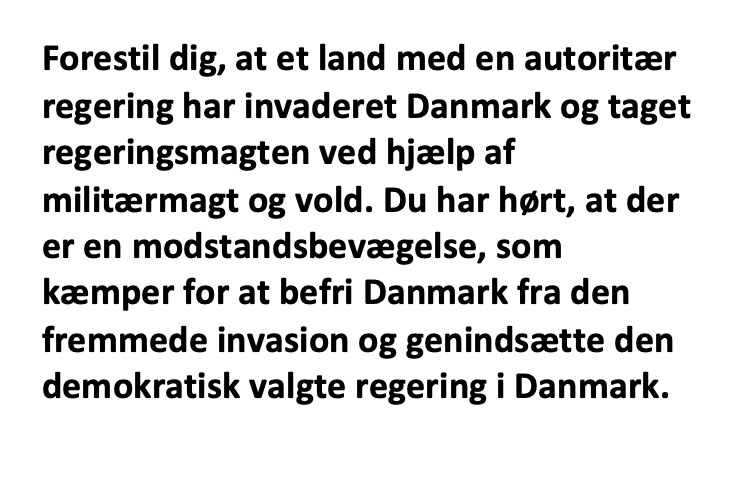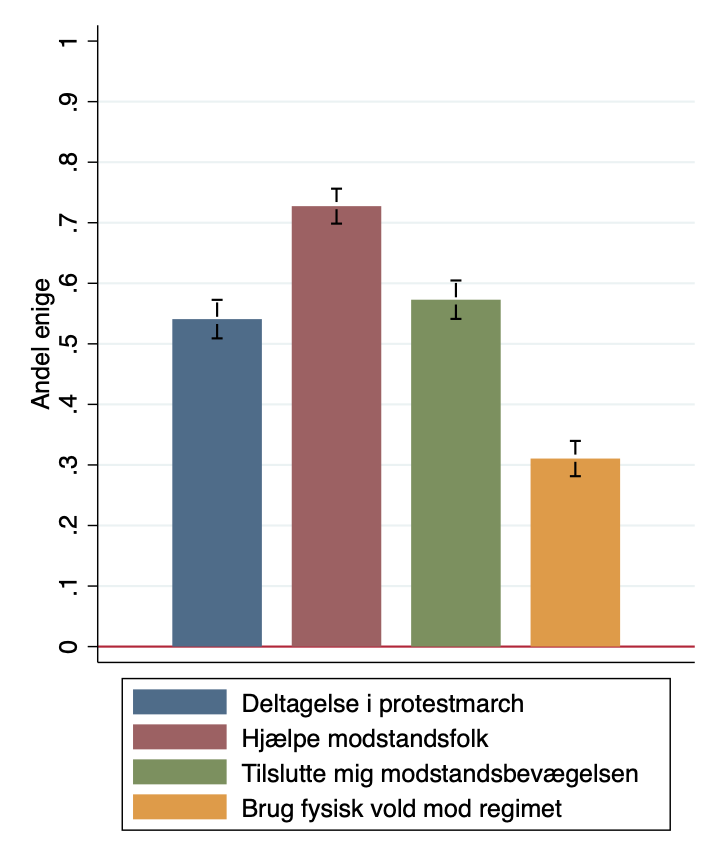
Hvad betyder konflikten med Rusland for danskernes vurdering af hvem, der er en dygtig politiker?
I 2015 undersøgte vi lige præcist dét spørgsmål.
Vores forskning viser, at borgerne efterspørge nye, dominerende sider af politikerne - men kun så længe striden står på.
🧵(1/11)
I 2015 undersøgte vi lige præcist dét spørgsmål.
Vores forskning viser, at borgerne efterspørge nye, dominerende sider af politikerne - men kun så længe striden står på.
🧵(1/11)
Mød Christian Mortensen. En fiktiv folketingspolitiker, som 1524 repræsentative danskere blev præsenteret for.
Deltagerne mødte CM i én af to udgaver. For hver deltager var det tilfældigt, hvilken udgave, som de mødte. Èn var venlig. Èn anden knap så venlig. (2/11)
Deltagerne mødte CM i én af to udgaver. For hver deltager var det tilfældigt, hvilken udgave, som de mødte. Èn var venlig. Èn anden knap så venlig. (2/11)

Her er det, som vi kalder den ikke-dominerende personlighed. Denne CM er en samarbejdende type, som sætter pris på andre.
(3/11)
(3/11)
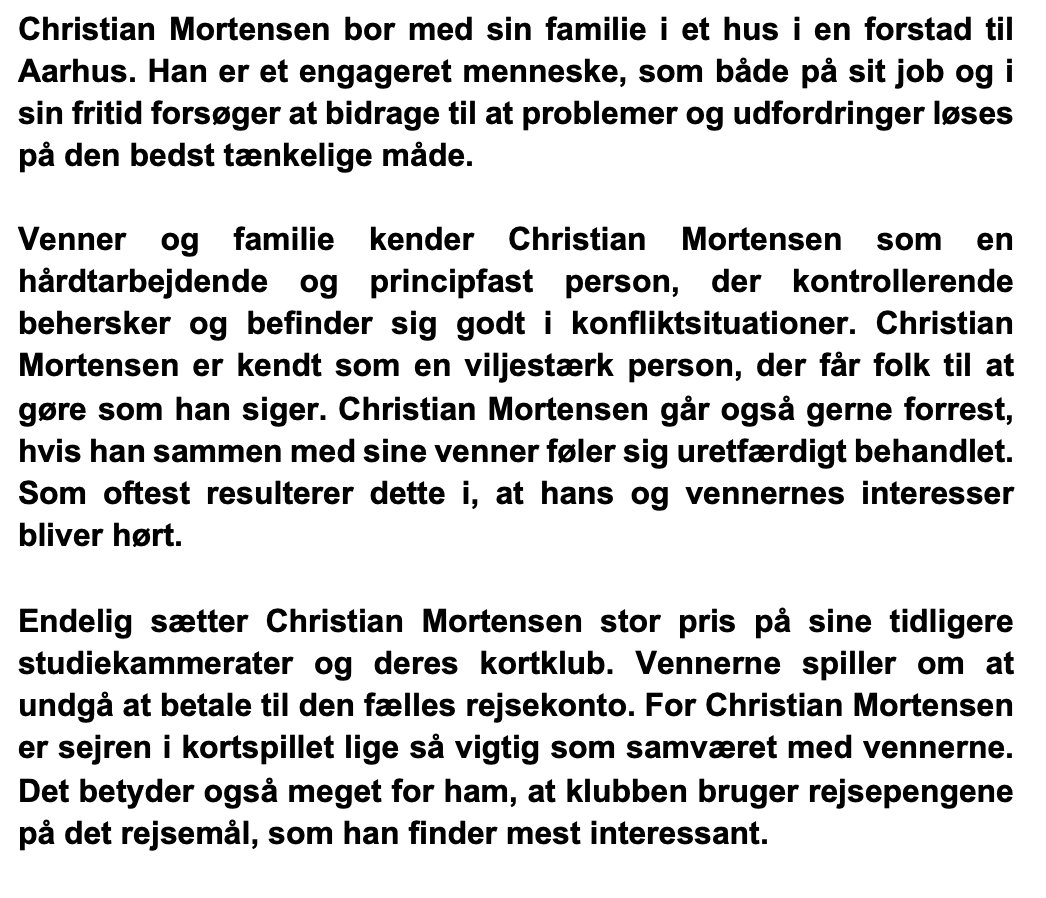
Her det det, som vi kalder den dominerende personlighed. Denne CM er fokuseret på sig selv og er mere tilbøjelig til at sætte hårdt mod hårdt.
(4/11)
(4/11)
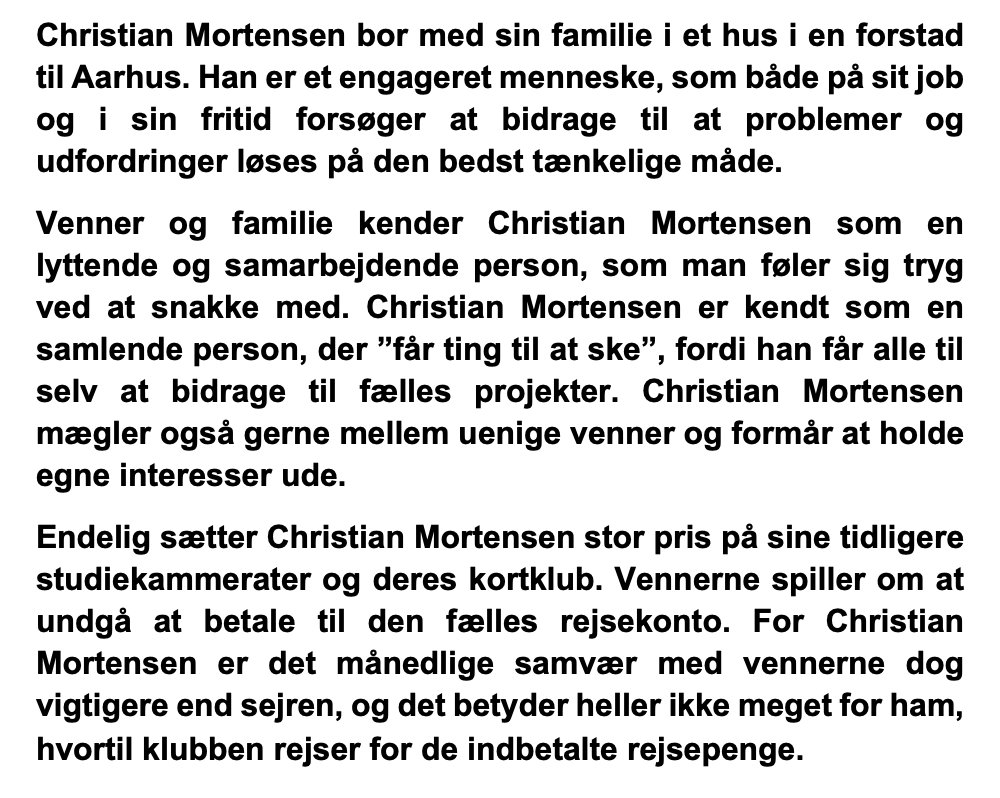
I den indledende beskrivelse blev CM ikke beskrevet som politikere. Det kom senere i undersøgelsen. Og der spurgte vi så, hvor kompetent som politiker, deltagerne opfattede CM. Vi spurgte flere gange. 2. gang var en uge efter og 3. gang en måned efter. (5/11)
Ikke overraskende fandt vi, at folk ikke kan lide en dominerende type - heller ikke som politiker. Mere interessante er det, at folk stadig reagerer negativt på den dominerende CM en måned senere, trods at folk alene præsenteres for hans billede. First impressions last. (6/11) 
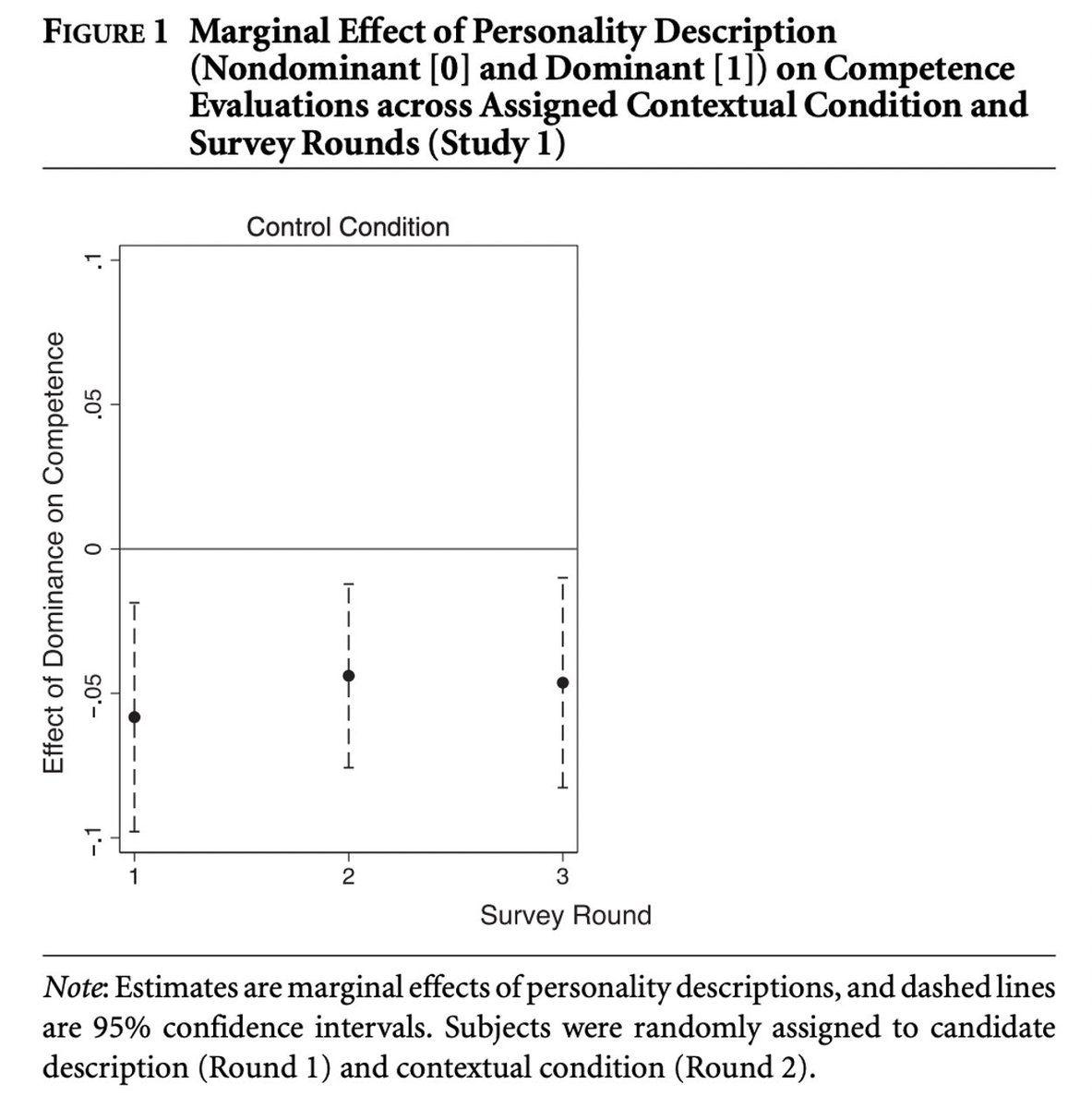
Og så kommer vi til Rusland. For én gruppe blev i Runde 2 præsenteret for et scenarie med en strid mellem DK og Rusland. Ikke om Ukraine, men om Arktis. 👇
(7/11)
(7/11)
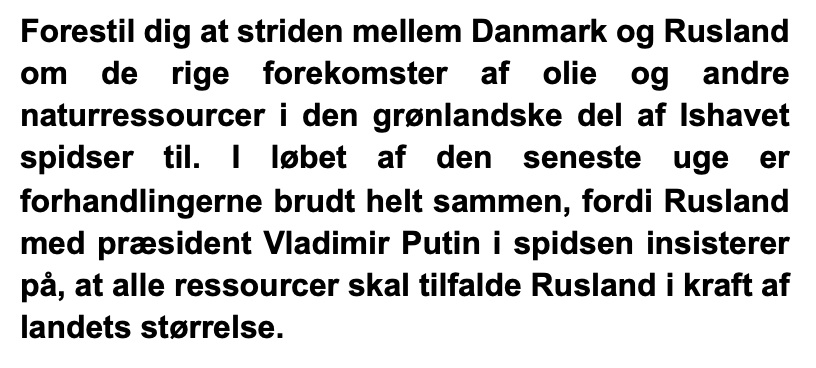
I lyset af russisk aggression, så ændrer folks holdninger sig til CM markant. Pludselig opfatter folk den dominerende CM som *mere* kompetent end den ikke-dominerende CM. Men da konflikten er forsvundet i Runde 3, så forsvinder præferencen for dominans igen. (8/11) 
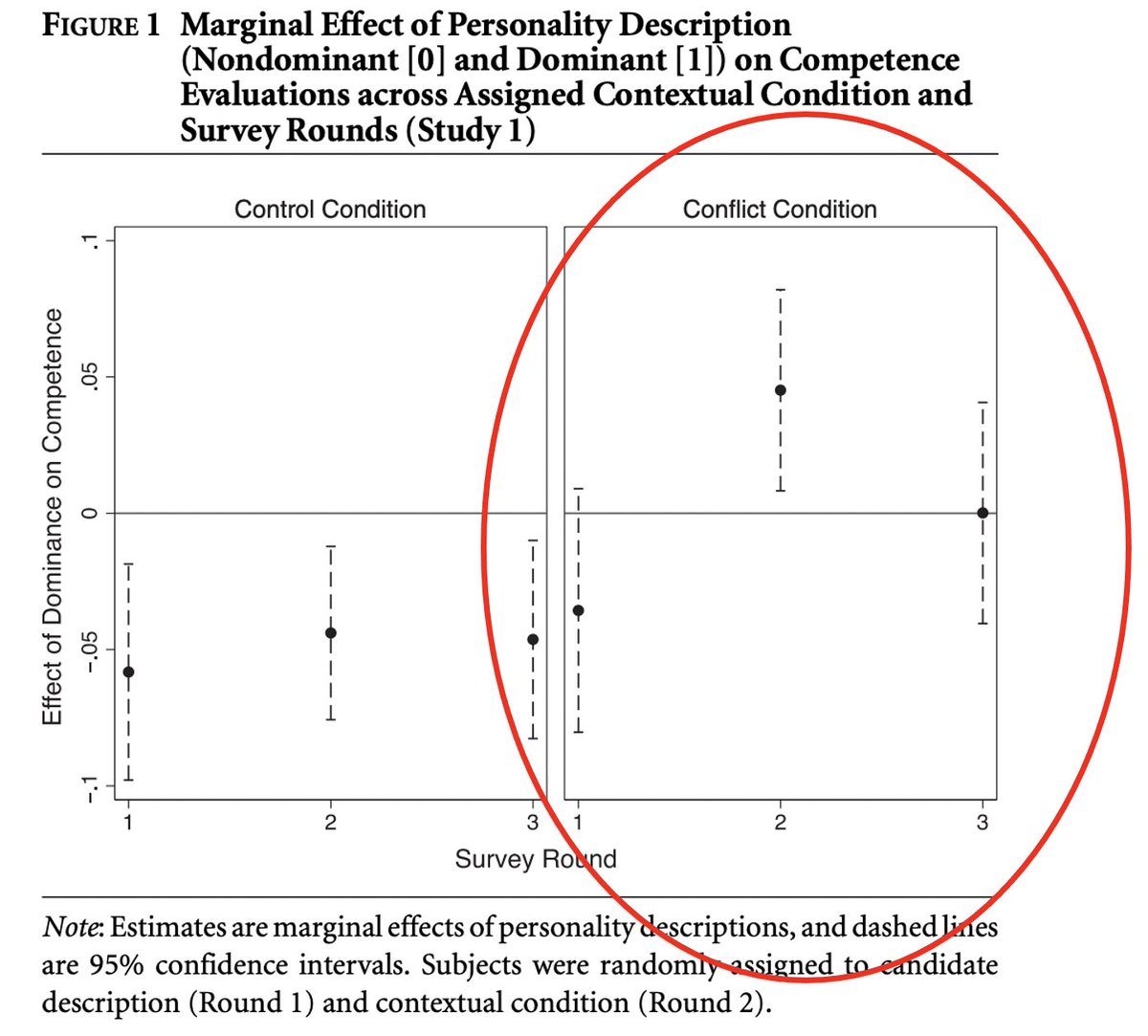
Undersøgelsen viser altså
...at politikeres personlighed betyder noget
...at folk gemmer deres indtryk af politikeres personlighed i deres langtidshukommelse
...og at vi foretrækker mere dominerende politikere, når vi trues af et aggressivt Rusland.
(9/11)
...at politikeres personlighed betyder noget
...at folk gemmer deres indtryk af politikeres personlighed i deres langtidshukommelse
...og at vi foretrækker mere dominerende politikere, når vi trues af et aggressivt Rusland.
(9/11)
I en opfølgende undersøgelse viste vi, at vælgere i konfliktsituationer faktisk er villige til at ofre indhold i bytte for den rette personlighed.
De tager gerne en dominerende politikere, selv hvis de er mindre enige med ham.
(10/11)
De tager gerne en dominerende politikere, selv hvis de er mindre enige med ham.
(10/11)
Det betyder, at Putins invasion i Ukraine kan flytte stemmer i Danmark - i hvert fald hvis truslen fortsætter.
Artiklen findes her og er skrevet sammen med @LasseLaustsen: doi.org/10.1111/ajps.1…
(11/11)
Artiklen findes her og er skrevet sammen med @LasseLaustsen: doi.org/10.1111/ajps.1…
(11/11)
• • •
Missing some Tweet in this thread? You can try to
force a refresh


